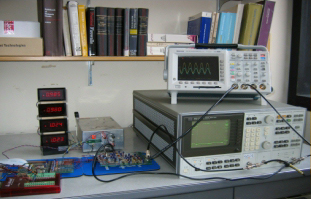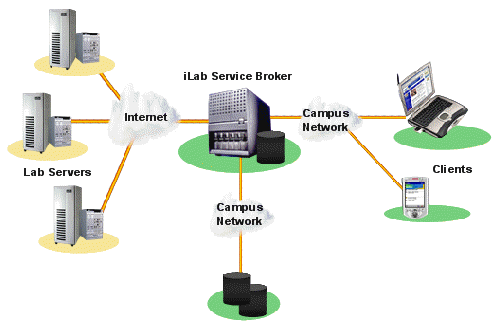 |
 |
iLab Project at MIT
As of 2019, the iLabs project at MIT has come to a close. This site is being left online as a historical record.
About iLabs
iLabs is dedicated to the proposition that online laboratories – real laboratories accessed through the Internet – can enrich science and engineering education by greatly expanding the range of experiments that students are exposed to in the course of their education. Unlike conventional laboratories, iLabs can be shared across a university or across the world. The iLabs vision is to share expensive equipment and educational materials associated with lab experiments as broadly as possible within higher education and beyond.
iLab teams have created remote laboratories at MIT in microelectronics, chemical engineering, polymer crystallization, structural engineering, and signal processing as case studies for understanding the complex requirements of operating remote lab experiments and scaling their use to large groups of students at MIT and around the world.
Based on the experiences of the different iLab development teams The iLabs Project is developing a suite of software tools that makes it efficient to bring online and manage complex laboratory experiments. The iLabs Shared Architecture has the following design goals:
- Minimize development and management effort for users and providers of remote labs
- Provide a common set of services and development tools.
- Scale to large numbers of users worldwide
- Allow multiple universities with diverse network infrastructures to share access
Overview of the iLabs Shared Architecture
iLabs’ design separates online labs into three distinct modules connected by a Web service architecture.
- The Lab Server is operated by the lab’s owner and deals with the actual operation of the lab hardware.
- The Lab Client runs on the end user’s computer, and provides the interface to the operation of the lab.
- The Service Broker mediates exchanges between the Lab Client and the Lab Server and provides storage and administrative services that are generic and can be shared by multiple labs within a single university.
